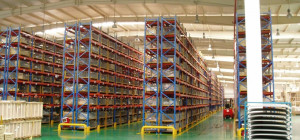 Welcoming a new puppy home is the biggest joy one could ever experience. In those initial months, your pup requires a balanced diet to fuel their speedy growth and to ensure they live a long, healthy and memorable life. As per AAFCO recommendations, your pup’s diet must have at least 22% protein, 8% fat, adequate carbohydrates, essential fatty acids with mineral and vitamin fortification. Puppy food is absolutely essential for the first year of your pup’s development as it sets the basis for their overall health and nutrition for the rest of their life. Not to mention, the growth deformities and deficiency disorders, if you fail to provide the right nutrition. Hence, getting the nutritional balance exactly right with just homemade food becomes an overwhelming process for any new doggo owner. But the good news is, we have done the research for you and with our selection of puppy dry food online, wet food, treats & more, you will find one that meets the needs of your growing pupper and your budget.
Welcoming a new puppy home is the biggest joy one could ever experience. In those initial months, your pup requires a balanced diet to fuel their speedy growth and to ensure they live a long, healthy and memorable life. As per AAFCO recommendations, your pup’s diet must have at least 22% protein, 8% fat, adequate carbohydrates, essential fatty acids with mineral and vitamin fortification. Puppy food is absolutely essential for the first year of your pup’s development as it sets the basis for their overall health and nutrition for the rest of their life. Not to mention, the growth deformities and deficiency disorders, if you fail to provide the right nutrition. Hence, getting the nutritional balance exactly right with just homemade food becomes an overwhelming process for any new doggo owner. But the good news is, we have done the research for you and with our selection of puppy dry food online, wet food, treats & more, you will find one that meets the needs of your growing pupper and your budget.
As a new or potential pet parent, you probably have these questions in mind; How often to feed my puppy? How much quantity? And most importantly WHAT to feed my perpetually hungry pup? We’ll break down each of these questions for you, so read on.
How often should I feed my puppy?
Your pup’s feeding schedule will undergo quite a few updates in the first year. Owing to their fast development and tiny gut size, your pup will start off with 5 meals spaced out in a day before the age of 2 months. Your pup will soon graduate to 4 meals a day till 3 months of age transitioning to 3 meals a day after the age of 3 months. From six months onwards upto almost a year, you can move your puppy’s feeding times down to two a day. Feeding your pet at the same time every day helps them set into a routine. Your pup may start showing signs of feeling hungry during those times and not hungry during hours you fed them earlier.
| AGE | FEEDING FREQUENCY |
| Up to 2 months | 5 times a day |
| 2-3 months | 4 times a day |
| 3-6 months | 3 times a day |
| 6 months onwards | 3 times a day |
How much to feed my puppy?
Its best to feed them smaller, more frequent meals. Puppy food is formulated to provide a certain amount of nutrients per amount of food. Due to the rapid phases of growth puppies experience, they require food which has higher energy-density than an adult dog along with a larger volume of food than their adult counterparts. As they grow up, their feeding quantity gradually decreases with age. Surprising, right? Think of it as feeding for the future, rather than the size they are today.
How much food a puppy should eat is a question with a lot of variables, the biggest being the breed.” Different breeds have different daily caloric requirements due to differences in metabolism and level of activity. Furthermore, the puppy’s weight plays a major role in portion control. As a thumb rule, a puppy should be fed at the rate of 15 grams of feed per kg body weight of the pup in each meal.
Say your 3-month old doggo weighs 3 kgs.
So, one meal will comprise 15 X 3= 45 grams of food.
As the frequency of feeding for this age category is 3 times a day, the total allowance for the day will amount to 45 X 3= 135 grams. You can dodge this math simply by following the feeding table on the back of the bag of dog food.
Word of caution here, DO NOT let those puppy dog eyes trip you into giving them more food than what is advised.
What should I feed my puppy?
Puppies are likely to eat whatever is found under their nose! As the parent, you need to decide the right pet foods. With countless years of research and dollars spent on perfecting the best formulation for your furry companion, they are the best bet for your pup. Your pup’s unique nutritional requirement will depend on its size, breed and age. Puppies of small sized breeds can reach their full adult size at about nine to ten months of age. While the large breed puppy can take anywhere from fifteen to twenty-four months. There’s no “one-size-fits-all diet” that could possibly cover all the needs of all the puppies in the world. Additionally, puppy food comes in a variety of types such as dry kibble, wet food, raw, freshly made and treats.
With so many tasty and healthy food options for pups, it’s definitely a good idea for pet parents to invest time in understanding the important ones.
Dry food
Dry food is a popular option for many pet parents owing to the convenience and ease along with acceptability in vegetarian households too. By the time puppies are six weeks old, they will start weaning off their mothers onto a mixture of puppy cereal and a specially formulated puppy food. The type of dry food you choose for your puppy will further depend upon the age and breed of your puppy. So, to provide a more specific nutrition, the dog food is categorised according to breed size into Mini, Medium, Maxi and Giant breed food.
| FOOD CATEGORY | BREEDS INCLUDED |
| Mini/ Small (Adult weight below 10 kgs) | Shih-Tzu, Pomeranian, Toy Poodle, Miniature Pinscher, Yorkshire Terrier, Chihuahua |
| Medium (Adult weight : 10-24 kgs) | Cocker Spaniel, Beagle, Poodle, Basset Hound, Dalmatian, Bulldog, Standard Schnauzer, Chow Chow |
| Maxi (Adult weight : 25-50 kgs) | Labrador Retriever, Golden Retriever, German Shepherd, Boxer, Akita, Siberian Husky |
| Giant (Adult weight over 50 kgs) | Saint Bernard, Bullmastiff, Great Dane, Rottweiler |
So after figuring out the category in which your pup belongs according to their breed, find the food appropriate for his age within that category.
Each breed category has a starter, puppy and adult food which changes with your puppy’s age. Starter food is an energy dense feed which supports the rapid growth of pups without disturbing their digestive system which is at an immature stage. Kibbles easily rehydrate to a consistency that is porridge-like which is very palatable for weaning puppies. Puppy food further facilitates proper growth and helps avoid excess weight gain thanks to an adapted energy content. Skeletal development is the hallmark of this growth period; hence an appropriate puppy food provides the right nutritional balance of calcium and phosphorus in their diet. Adult food is a tailored diet to maintain a healthy body conformation throughout the dog’s life.
Starter food: (Age group- Up to 2 months)
Till 2 months of age, gradually transition your pup from mother’s milk or the feed the breeder was giving to a category of dry food known as starter food. It has a combination of nutritional elements present in mother’s milk that actively promote digestive health and help maintain the puppy’s natural defences. This food facilitates an easy transition from mother’s milk to solid food. If your puppy is struggling to eat dry food, you can try mixing it with a little warm water to make it softer, until their teeth get stronger.
Puppy Dry food: (Age group: 2-10 months (small breed) , 2-15 months (large breed))
Most commercial puppy dry foods have a range for puppy stage which applies for small breed pups till the age of 10 months and large breed pups till the age of 15 months. This food has excellent sources of protein namely chicken, lamb, fish and turkey which is extremely essential for proper growth. It is rich in calories from protein and fat sources. Crunchy dry kibble has an add-on advantage of keeping your dog’s teeth healthy by reducing plaque and tartar build-up. Which is why kibble eaters generally have way better breath!
Adult food: (Age group: After 10 months (small breeds), after 16 months (large breed))
While puppy dry food has many of the same ingredients as adult dry dog food, puppy meals tend to have higher concentrations of essential nutrients. This is because puppies have different requirements as compared to older dogs; just as human babies have different diets from adult humans. So, they’ll need fewer of the resources in their food to contribute to growth, but need more to support maintenance. They are enriched with probiotics, vitamins, essential fatty acids to support digestive and joint health, maintain skin barrier and manage an ideal weight.
The best time to change from puppy dry food to adult dry food depends on their breed, but most dogs are ready to change foods between 12-24 months of age.
Make the change gradually: Irrespective of your dog’s age, any form of food transition with dogs must be done gradually. Start by mixing a little of the next stage food (10-15%) with the previous stage food. If your puppy shows no unusual signs and tolerates it, (translation: no intestinal disturbances), you can double the amount of new food the next day. It should usually take about a week to make the full transition.
(P.S.- make sure there is plenty of fresh water available for your pup)
Pet parents usually have their hands full with their pup’s feeding schedule, potty training and teething that they often miss out on their most basic necessity; WATER. Every single bodily function from digestion to brain development, requires water. All efforts put into providing the best possible nutrition will turn to dust, if your pup is in a dehydrated state. Therefore, it’s very important to keep your pooch well hydrated at all times so they function at the peak of their capacity and avoid any health issues that could creep up due to dehydration. As a thumb rule, puppies must have direct access to at least one-half cup of water every two hours or so. Each time you reach for your own water bottle, think of your pet’s water needs, too.
Wet Food
Whilst dry food mainly brings advantages for the owner in terms of price, cleanliness and convenience, the advantages of wet food benefit the dog itself. Most doggos would probably opt for wet food if they could choose themselves, since wet food, more intense in smell and taste, simply tastes better to them. It is ideal for fussy eaters or pets with illnesses. With grain free and chicken free options, wet food is one of the best options for dogs with food allergies. Wet puppy food also offers your dog more hydration. Wet food becomes an important source of hydration in dogs that are hyperactive and don’t drink a lot of water themselves.
Both dry and wet food have their fans, so most pet parents provide the best of both worlds by feeding a mix of the two or simply using wet food as a topper for dry food. But remember, it is the content that matters, not the variety. So, focus on a food that best supports their growth and development and helps them thrive.
Treats
These titbits not only serve as a pat on the back for when your puppy does something good, but can also be used for mental stimulation, dental care, teething and supplementation.
It should be noted that even the healthiest dog treats can never replace a balanced diet in a dog’s life. Treats should be seen as enjoyable supplements to a dog’s daily diet.
Foods your dog should never eat
It sure is difficult to resist those big brown eyes and that adorable face. But remember before giving them a little reward off your table, that certain human foods are downright dangerous for your bundle of fluff. Due to differences in body composition, digestive enzymes and physiology of the body, some foods can upset your pup’s digestive system and send them straight to the emergency vet.
Avocados, grapes, raisins, onion, garlic, almonds, chocolate, coffee and tea are certain foods that are perfectly suitable for human consumption but are TOXIC for your dog, posing a serious threat to their health and well-being. Dairy products can cause dysbiosis in certain dogs further leading to diarrhoea as well as food allergies. The bones in meat, chicken and fish can be hazardous too. They can splinter and stick in the throat, break teeth or cut the intestines. Candy, gum, toothpaste, baked goods, and some diet foods which are sweetened with xylitol are also extremely dangerous. Also, accidental consumption of alcohol, tobacco or marijuana can be lethal. So, keep these foods out of your dog’s reach and contact your vet ASAP if they do consume any of these!
A human takes 18 years to fully grow and reach adulthood. Whereas your pooch has to cover this 18 year worth growth in mere 12-24 months. This only emphasises the need for proper nutrition in puppyhood. Proper research and a consultation with a vet will help you map out the best combination of dry, wet, homemade food and treats to ensure good health for your pupper who is just starting out in life.
For more information about Puppy Food Online visit: PetPedia.in







